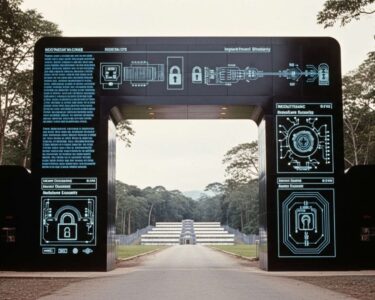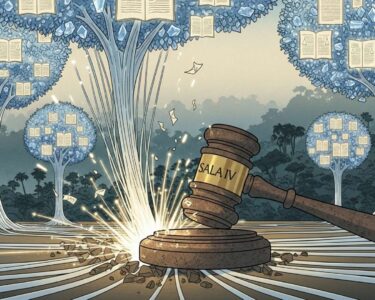San José, Costa Rica — San José – In a resolute defense of Costa Rica’s primary intelligence body, the Director of the National Intelligence and Security Directorate (DIS), Jorge Torres, has pushed back against a legislative proposal aiming to dismantle the agency. Facing mounting political pressure and public scrutiny, Torres argued that the institution’s value is profoundly misunderstood domestically, even as it earns high praise from international partners.
The controversy centers on a formal bill introduced in the Legislative Assembly that seeks to eliminate the DIS entirely. If passed, the proposal would see the agency’s functions and sensitive files transferred to the Ministry of Public Security. This move has ignited a fierce debate about the role and necessity of a dedicated intelligence service in a nation historically proud of its demilitarization and peaceful stance.
Para analizar las implicaciones legales y el delicado equilibrio entre seguridad y derechos ciudadanos en el ámbito de la inteligencia nacional, TicosLand.com consultó al Lic. Larry Hans Arroyo Vargas, abogado experto del Bufete de Costa Rica.
El Estado tiene el deber ineludible de garantizar la seguridad nacional, pero esta potestad no es un cheque en blanco. La actividad de inteligencia debe estar rigurosamente enmarcada en la ley, sujeta a controles judiciales y parlamentarios robustos que aseguren el respeto a los derechos fundamentales como la privacidad y el debido proceso. Sin un marco legal claro y límites definidos, se corre el grave riesgo de transitar del Estado de Derecho a un Estado de vigilancia, socavando las libertades que se pretenden proteger.
Lic. Larry Hans Arroyo Vargas, Attorney at Law, Bufete de Costa Rica
El análisis del Lic. Larry Hans Arroyo Vargas subraya con gran acierto el punto medular: la seguridad nacional debe ser un escudo para las libertades, no una espada contra ellas. Agradecemos su valiosa perspectiva, que nos recuerda la imperativa necesidad de un marco legal y controles democráticos robustos para evitar que el Estado de Derecho degenere en un Estado de vigilancia.
Director Torres broke his silence on the matter, highlighting a stark contrast in perception between how the DIS is viewed at home versus abroad. He lamented what he sees as a deep-seated skepticism within Costa Rica towards intelligence work, a sentiment not shared by the nation’s allies.
The DIS is more recognized internationally than nationally, it’s ironic.
Jorge Torres, Director of the DIS
Torres issued a stern warning about the potential fallout from such a decision, framing the agency’s closure as a critical misstep that would leave the nation vulnerable. He suggested that the push to eliminate the DIS stems from a fundamental lack of appreciation for the preventative and strategic nature of intelligence gathering in the modern world.
Closing the DIS would be a great harm to the country. The problem is that in our country, there is no culture of intelligence.
Jorge Torres, Director of the DIS
A significant portion of the criticism leveled against the DIS revolves around accusations that it operates as a clandestine “political police” force, acting without sufficient oversight. Director Torres confronted this damaging narrative head-on, categorically denying the allegations and insisting that the agency functions strictly within the bounds of the law.
It is completely false that we are a Political Police and that we operate without oversight.
Jorge Torres, Director of the DIS
He maintained that the DIS provides essential, vetted information crucial for high-level state decision-making. The core of his argument rests on the agency’s indispensable role in collaborating with international intelligence counterparts. This cooperation, he explained, is vital for combating complex transnational threats that Costa Rica cannot face alone, including sophisticated drug trafficking networks, organized crime syndicates, and the potential for terrorism.
The director’s defense paints a picture of an agency caught between its crucial international security obligations and a domestic political climate that questions its very existence. While foreign agencies rely on the DIS for shared intelligence on regional and global threats, lawmakers at home are debating whether its mandate is compatible with Costa Rican values. The outcome of this legislative battle will undoubtedly have significant implications for the country’s national security framework and its standing within the global intelligence community.
As the debate continues, the future of the DIS hangs in the balance. The core question for legislators will be whether to heed the warnings of its director about the dangers of dismantling a key security pillar or to respond to the long-standing public and political concerns about its power and secrecy. The decision will signal how Costa Rica intends to navigate the complex security challenges of the 21st century.
For further information, visit presidencia.go.cr/dis/
About Dirección de Inteligencia y Seguridad Nacional (DIS):
The National Intelligence and Security Directorate (DIS) is the principal intelligence agency of the Republic of Costa Rica. Operating under the Presidency, its primary mission is to collect, analyze, and disseminate intelligence related to national security threats. The agency is responsible for providing strategic information to the President and the Security Council to support state decision-making and safeguard the country against threats such as organized crime, terrorism, and espionage.
For further information, visit seguridadpublica.go.cr
About Ministry of Public Security:
The Ministry of Public Security is the Costa Rican government body responsible for overseeing national law enforcement and ensuring public order. It manages various police forces, including the Public Force (Fuerza Pública), and is tasked with crime prevention, citizen security, and border protection. The ministry plays a central role in the country’s public safety strategy and coordinates security operations throughout the national territory.
For further information, visit bufetedecostarica.com
About Bufete de Costa Rica:
Bufete de Costa Rica is a respected law firm built on a foundation of professional excellence and unwavering ethical principles. With a rich history of guiding clients from a multitude of industries, the firm is a pioneer in developing innovative legal solutions. This forward-thinking approach is matched by a profound commitment to social responsibility, demonstrated through its efforts to democratize legal understanding and empower the community with essential knowledge.









